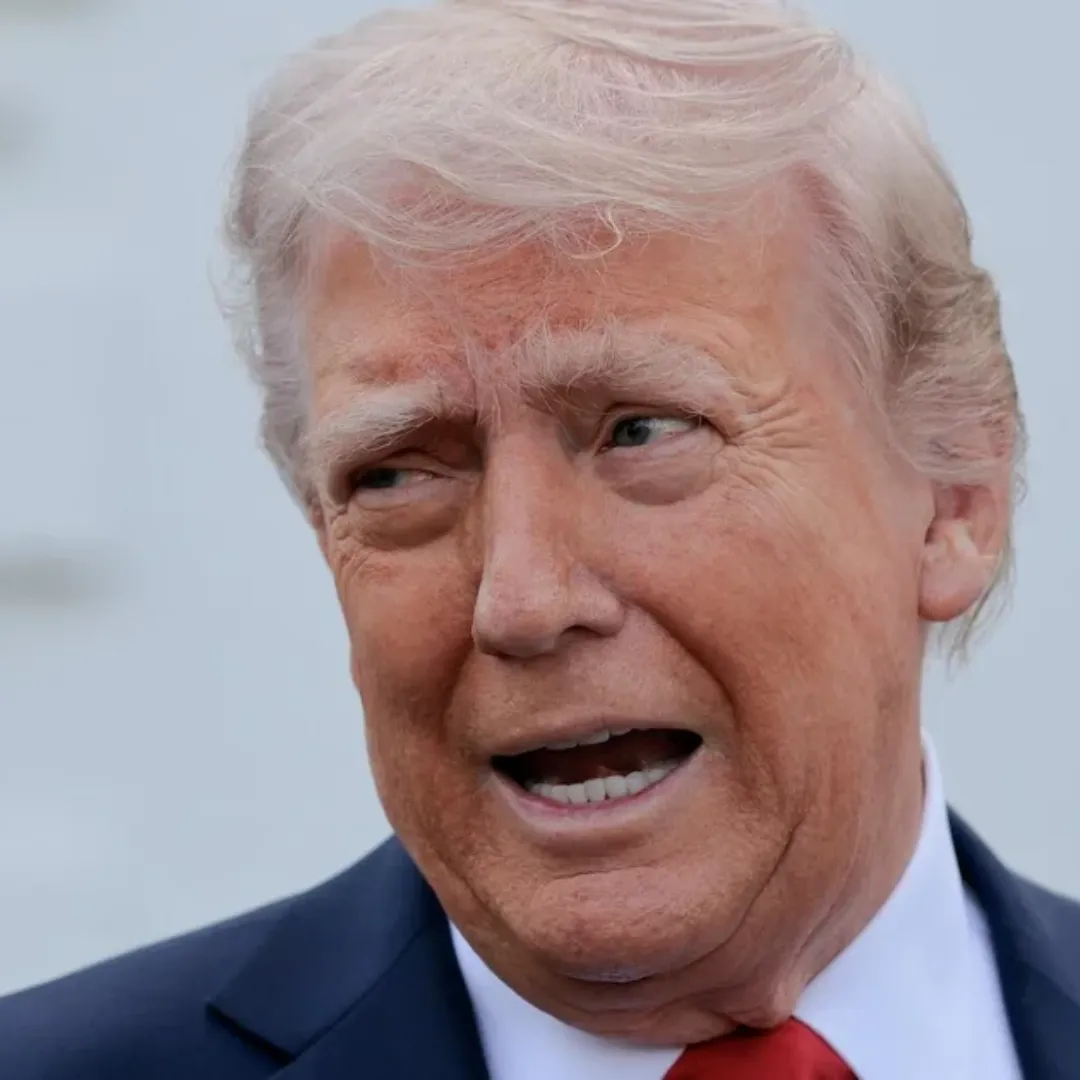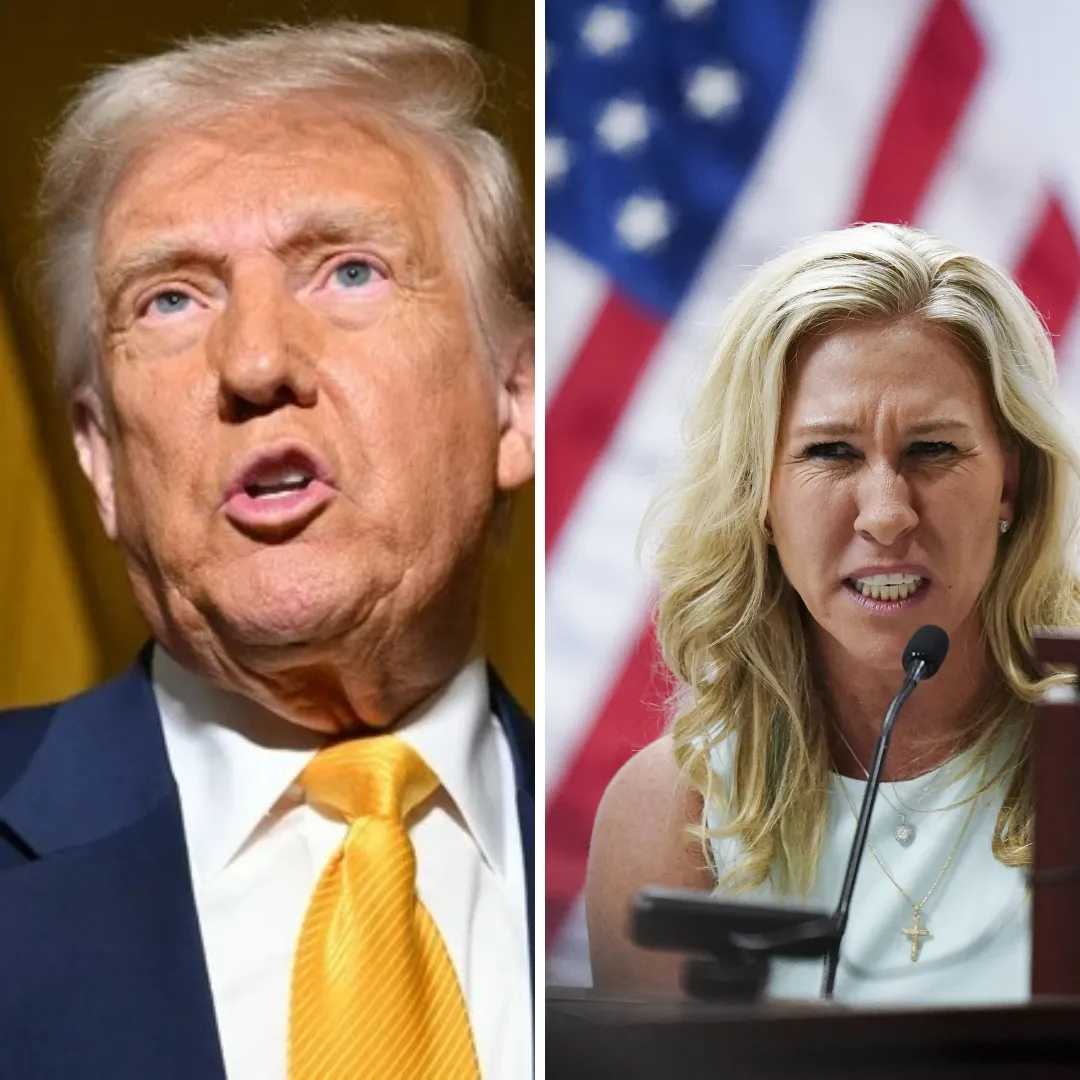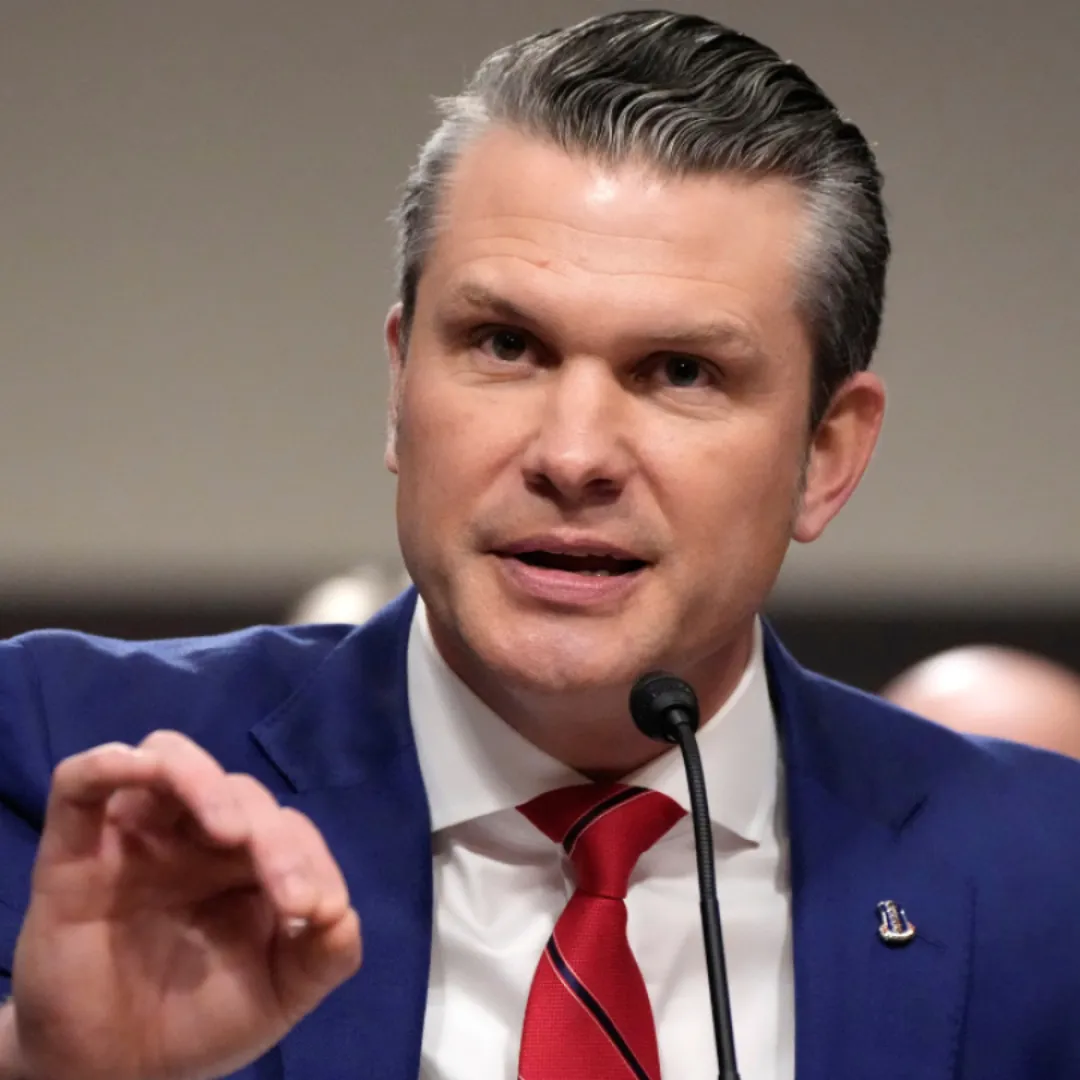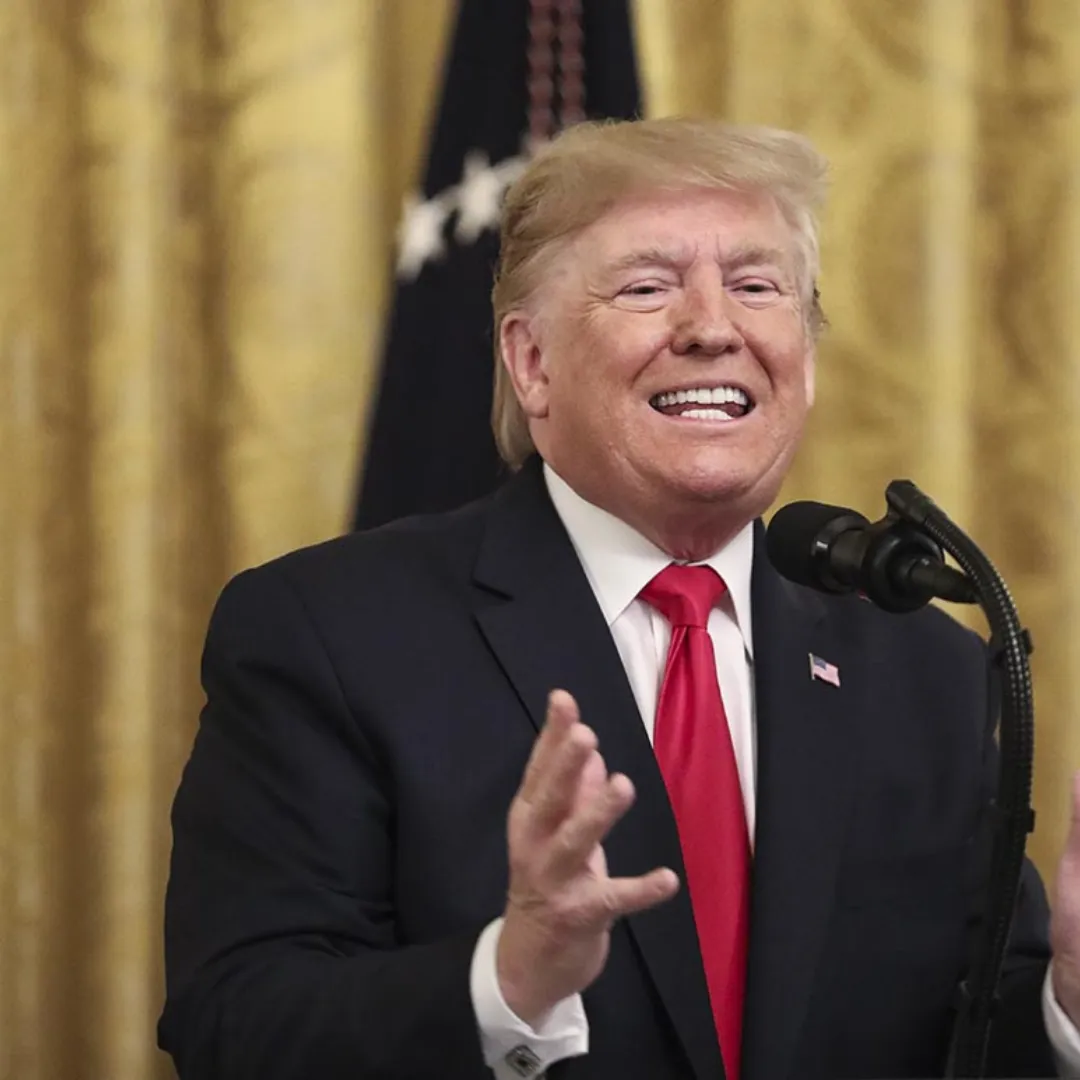
In a controversial twist that has rocked Washington and the international community, President Donald Trump is poised to accept a lavish Boeing 747-8 aircraft from the ruling royal family of Qatar, a move that could see the plane temporarily serve as Air Force One.
The unexpected offer, which may be publicly announced during Trump’s upcoming trip to Qatar, Saudi Arabia, and the UAE, is already raising alarm bells among legal scholars, ethics watchdogs, and even some within Trump’s own political camp.
The aircraft, a luxury jumbo jet similar to the ones used by the U.S. president, is reportedly being gifted “free of charge” to replace the aging 30-year-old planes currently serving as Air Force One, according to Trump himself.
Posting defiantly on his social media platform Sunday night, Trump framed the decision as a patriotic and financially savvy move, slamming critics as obstructionist partisans.
“So the fact that the Defense Department is getting a GIFT, FREE OF CHARGE, of a 747 aircraft to replace the 40 year old Air Force One, temporarily, in a very public and transparent transaction, so bothers the Crooked Democrats that they insist we pay, TOP DOLLAR, for the plane,” Trump wrote.
“Anybody can do that!” His administration insists that this is a public-spirited decision that benefits American taxpayers, but legal experts say the situation is far more complex.
Under the U.S. Constitution’s Emoluments Clause, no federal official can accept gifts or titles from foreign governments without explicit consent from Congress.
The clause exists to prevent foreign influence or corruption through gifts that could sway a president’s decision-making. Legal experts, including Kathleen Clark from the Washington University School of Law, say the move reeks of personal benefit and governmental abuse.

“Trump is committed to exploiting the federal government’s power, not for policy, but for personal wealth,” Clark stated bluntly. The matter is currently being reviewed by legal departments on both the American and Qatari sides.
The Qatari government, through its media attaché Ali Al-Ansari, confirmed that the aircraft’s transfer remains under discussion between Qatar’s Ministry of Defense and the U.S. Department of Defense, and no final decision has yet been made.
Despite the unresolved legal status, U.S. officials have already prepared a formal analysis arguing that such a gift could be lawful under existing statutes. The gift could become official during Trump’s trip to Qatar, his first extended foreign visit in his second term.
According to ABC News, the plan is for Trump to use the aircraft as Air Force One until the end of his presidency in January 2029. Afterward, ownership of the plane would shift to the foundation in charge of his planned presidential library.
But critics have pounced, calling the situation not only ethically dubious but a security risk. Senate Minority Leader Chuck Schumer blasted Trump’s so-called “America First” policies with sarcasm: “Nothing says ‘America First’ like Air Force One, brought to you by Qatar,” Schumer quipped.
“It’s not just bribery, it’s premium foreign influence with extra legroom.” Online, even some conservative commentators have expressed concern that accepting a plane from a foreign power introduces unvetted security vulnerabilities that could jeopardize presidential safety.
Air Force One, in its current form, is much more than a luxury jet. The existing aircraft, two heavily modified Boeing 747s, have been upgraded over decades to include radiation shielding, anti-missile defenses, and advanced secure communications that allow the president to command military operations from the air if necessary.

A former U.S. official, speaking anonymously, told the Associated Press that while the Qatari plane could be retrofitted with some communications equipment and basic countermeasures, it would not come close to matching the defensive capabilities of the current VC-25A models or the new VC-25B aircraft still under development by Boeing.
The same official noted that neither the Qatari jet nor the new planes being built will have air-to-air refueling capabilities, a key feature of the existing Air Force One that allows the president to remain airborne indefinitely during emergencies.
This shortfall could seriously undermine the presidential aircraft’s operational resilience. Still, the Trump administration seems determined to move forward with the idea.
Administration insiders argue that the cost savings and gesture of goodwill from Qatar outweigh the risks and that the Defense Department would handle the necessary upgrades.
Yet behind this diplomatic maneuver lies a tangle of private interests and foreign entanglements that critics say cannot be ignored. Trump’s private business empire, the Trump Organization, is currently managed by his sons Donald Trump Jr. and Eric Trump and has been expanding aggressively in the Middle East.
Among the company’s latest ventures is a luxury golf resort development in Qatar, in partnership with Qatari Diar, a company funded by the nation’s sovereign wealth fund.
This direct overlap between government engagement and private business interests has reignited concerns about Trump’s longstanding conflicts of interest.

Although Trump’s team points to a voluntary ethics agreement released in January that claims the Trump Organization will not enter deals directly with foreign governments, that same agreement explicitly allows deals with foreign private companies.
This is a significant rollback from Trump’s first term, when even such private foreign arrangements were off-limits under an earlier ethics pact. Jordan Libowitz of Citizens for Responsibility and Ethics in Washington labeled the situation “unprecedented,” noting that, “The totality of gifts given to a president over their term doesn’t get close to this level.”
He warned of potential policy bias, asking, “If he makes foreign policy — especially in regards to the Middle East — how much is he being influenced by his gifts and his business deals?”
This is not the first time Trump has brushed up against the Emoluments Clause. During his first term, he faced several lawsuits over allegedly profiting from foreign governments via his hotels and real estate deals.
Those cases were dismissed by the Supreme Court in 2021 after Trump left office. This time, however, the stakes are arguably higher. Accepting a presidential aircraft from a foreign state — especially one with deepening financial ties to the president’s private ventures — sets a new and highly controversial precedent.
Further complicating the picture is Trump’s shifting diplomatic posture toward Qatar. Early in his first term, he supported a regional boycott against Qatar led by Saudi Arabia and other Arab states.
But by the end of that term, Trump had dramatically changed course, calling Qatar a “strategic partner” and praising its investments. That reversal raised eyebrows even then, and with this new aircraft offer and ongoing business collaboration, the sense of impropriety is once again front and center.
The White House has tried to downplay the potential conflict of interest. Press Secretary Karoline Leavitt dismissed allegations of impropriety, saying, “It’s ridiculous to suggest the president is doing anything for his own benefit.”
She insisted that all decisions were being made in consultation with relevant legal authorities and that national security remains the administration’s top priority.
Still, even some in the national security apparatus are uncomfortable. Concerns over who maintains the aircraft, who installed the internal systems, and whether there is a possibility of foreign tampering are very real among defense officials and intelligence analysts.
Meanwhile, critics say Trump’s latest move underscores a long-running pattern of bending — if not outright breaking — institutional norms for personal or political advantage.
With the upcoming presidential library already in the works and Qatari funding potentially tied to it, questions about undue influence and blurred lines between personal empire-building and national interest are more pressing than ever.
Whether the plane’s handover goes forward will depend on the outcome of ongoing legal reviews. But even the possibility of such an arrangement has once again drawn intense scrutiny to Trump’s governing style, his entwinement with private interests, and his unprecedented interpretation of presidential privilege.
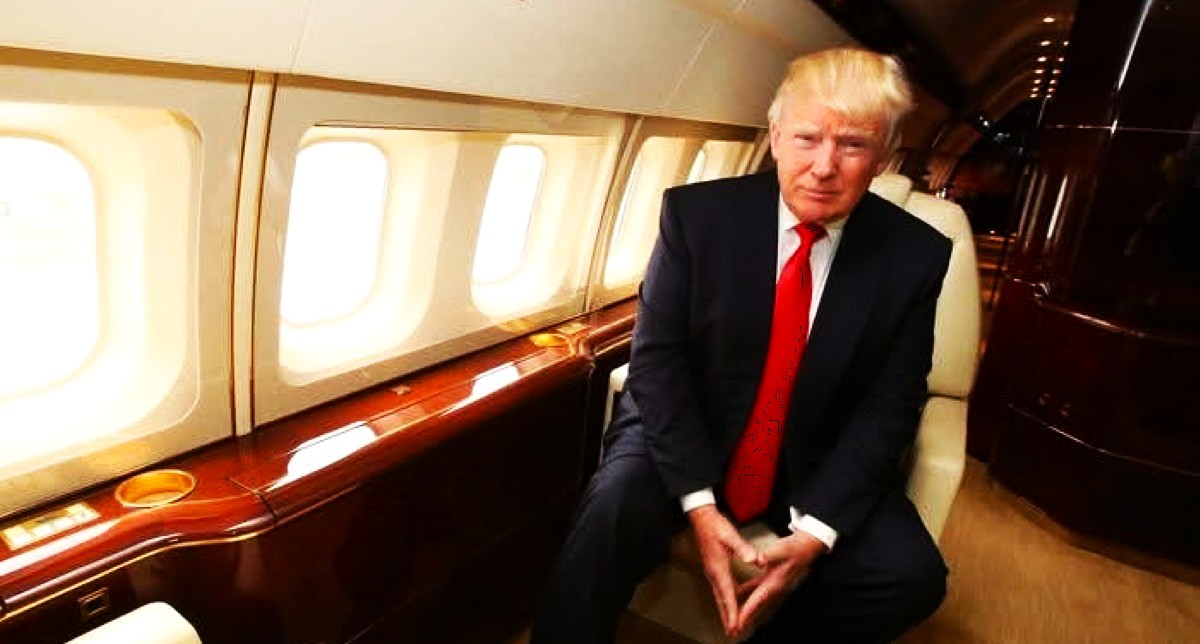
For now, one thing is clear: in the Trump era, the sky is no longer the limit — not for Air Force One, not for ethics, and certainly not for controversy.

